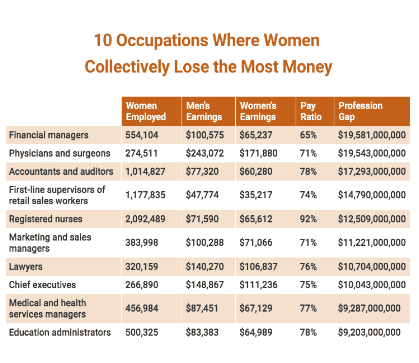
National Equal Pay Day 2019 reminds us that gender pay equity is crucial not only for social justice, but for women’s retirement security. When women earn less than men (currently, only 80 cents on the dollar), they cannot afford to save sufficient money for retirement – and their Social Security benefits are lower.
In 2016, the average annual Social Security income received by women 65 years and older was $13,891, compared to $17,663 for men. – National Committee Social Security Fact Sheet
Women take more time off work to care for family members, but don’t get credit for it in their Social Security earnings history. On average, women outlive men by five years – forcing them to stretch their retirement dollars over a longer span of time. That’s one reason why 11% of senior women live in poverty – an unacceptable number in the wealthiest country on earth.
Equal Pay Day marks the calendar date when the average woman has earned as much as the average man did the previous year.
“Because women earn less, on average, than men, they must work longer for the same amount of pay. The wage gap is even greater for most women of color.” – National Committee on Pay Equity
According to the National Partnership for Women and Families, African-American women make 64 cents on the dollar of what non-Hispanic white men earn. The figure drops to 55 cents on the dollar for Latinas. Not surprisingly, average Social Security benefits for black women are 25% lower than men’s, while Latinas’ are 31% lower.
Though the gender pay gap has closed by 3 percentage points since 2012, America has a long way to go toward wage equality. Among industrialized nations, the country’s pay inequity level consistently ranks in the top five. The wage gap is attributable to various forms of gender discrimination – ranging from biases about women’s performance in the workplace to the fact that men are likely to hold higher-ranking, higher paying positions.

Source: American Association of University Women
Given that society has made scant headway on this issue in recent years, it’s clear that women need stronger federal protections against wage inequality. The National Committee to Preserve Social Security and Medicare fully endorses the Paycheck Fairness Act, introduced by Senator Patty Murray (D-WA) and Rep. Rosa DeLauro (D-CT). Among other things, it would put an end to pay secrecy, strengthen workers’ ability to challenge discrimination, and bring equal pay law into line with other civil rights laws.
“This landmark legislation aims to prevent wage discrimination from happening in the first place. It will help women and their families now – and in later life when too many women dangle on the precipice of poverty.” – National Committee president and CEO Max Richtman
*****************************************************************************************
For more information on pay inequality and women’s retirement security, visit Eleanor’s Hope.


